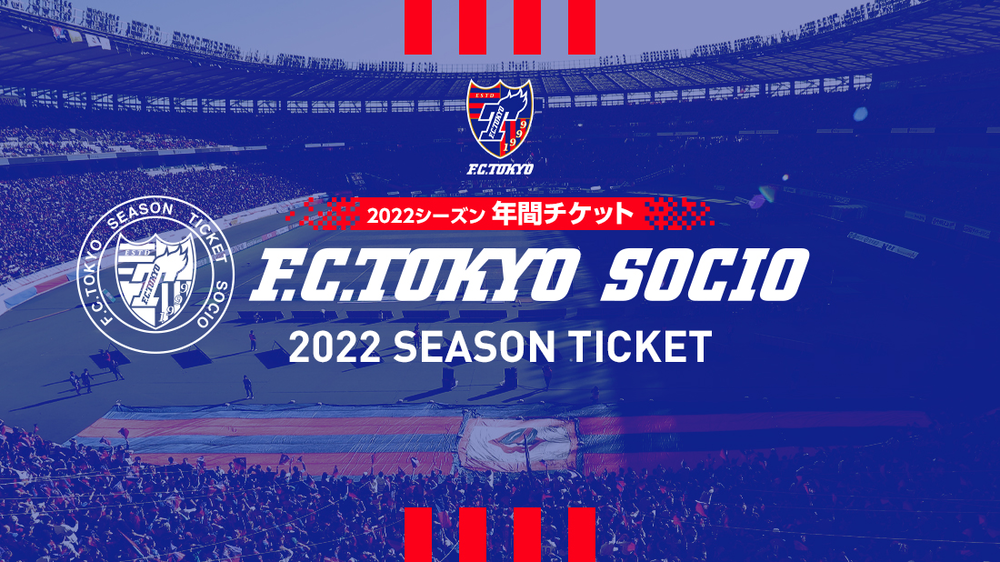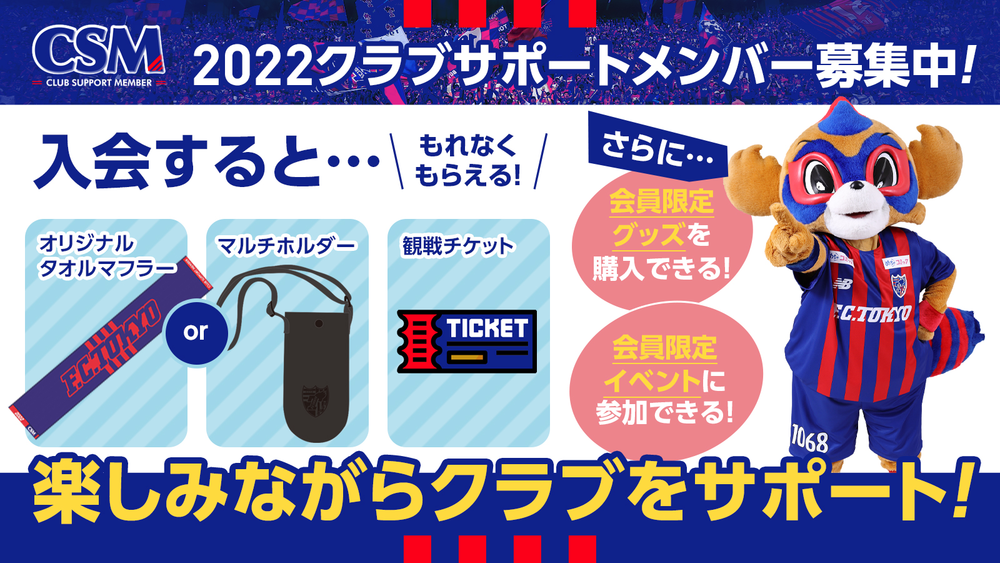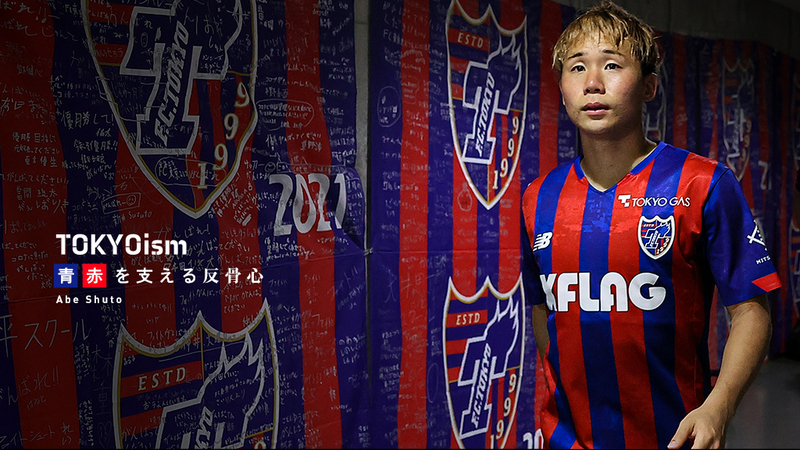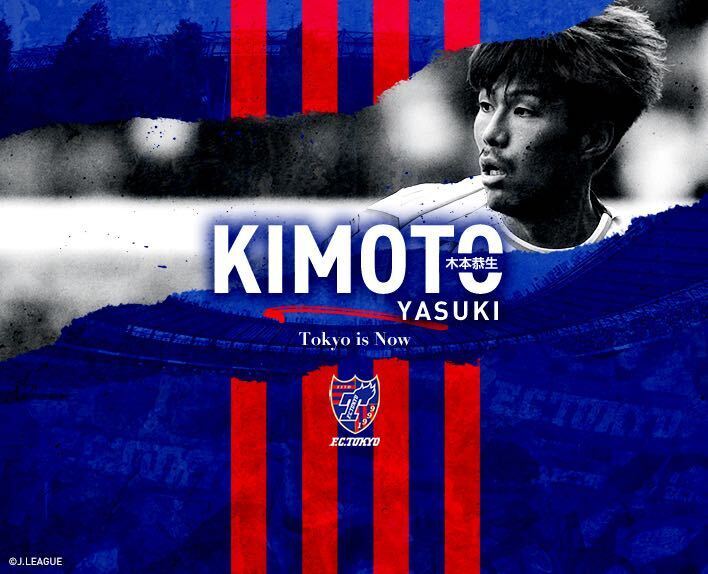Q: Before we talk about joining Tokyo, could you tell us about your experience playing in Sendai for the first time in Japan for two and a half years?
A, my family and I had a very happy life in Sendai. We received a lot of support from the fans and supporters in Sendai. I have only good memories. I am also grateful to the club staff, and I still remember my debut match against Cerezo Osaka. Of course, there were matches against Tokyo as well, and I have only happy memories.
Q: The press release announced from Sendai included the loving words, "Let's definitely meet again in J1." Player Kuba (nickname for Swowik) will continue to fight on the J1 stage as a member of Tokyo from here.
A, I am of course disappointed with the result of Sendai's relegation to J2 in the 2021 season. However, I approached every practice and match with all my strength. In that context, I was very happy to receive an offer from Tokyo, a big club in Japan, and I want to achieve a lot together with my teammates at this club.
Q: What was your impression of Tokyo as an opponent?
A, when I first came to Japan in the 2019 season, Tokyo was in the championship race. It gave the impression of being a strong team at the top of the standings. It is also a team where quality players consistently perform well in matches.
Q: In the 2021 season, Tokyo achieved two victories against Sendai, and in both matches, Kuba's big saves stood out.
Yes, I remember (laughs). However, in the end, Sendai lost. We did our best, but Tokyo has a lineup of high-quality players, which led to that result.
Q: Who is a memorable player from Tokyo?
Ah, it's Diego (Oliveira). I've faced him in penalty kicks twice, so he left a strong impression on me (laughs). His way of taking penalties is unique, and I really think he's a skilled player. From a GK's perspective, it's a difficult style to deal with, but now that we're on the same team, I feel like if I have him take penalties in practice, I could adapt to any style (laughs).
Q: There are excellent GKs in Tokyo, but what is your impression of the level of GKs in Japan?
Yes, of course, there are capable GKs in Tokyo, and Kosei TANI from Shonan is also a wonderful talent. Keisuke OSAKO from Hiroshima and Yuma OBATA, who played in Sendai, are also among them. It seems that there is an increasing number of promising players full of potential. There is no doubt that the quality of Japanese GKs is improving.
Q: Kuba's home country, Poland, has produced many famous goalkeepers such as Jerzy Dudek and Wojciech Szczęsny. Krzysztof Kamiński, who previously played for Iwata, also made an impact.
A, this is very important for Polish football. Many GKs have played in big European clubs and are currently active. Besides the players mentioned, GKs like Arthur BOLTS (who played with Shunsuke Nakamura at Celtic and Maya Yoshida at Southampton) and Lukasz FABIANSKI are also excellent. In Japan, the fact that Kaminski has made remarkable achievements has led to my opportunity to go to Japan. I also want to demonstrate the strength of Polish GKs firmly in Tokyo.
Q: By the way, at what age did player Kuba start playing as a GK?
Well, it's quite an old story... (laughs), I think I was around 5 or 6 years old. My older brother started playing soccer first, and since I was the smallest, I ended up playing as GK. Everyone disliked being GK because you have to fall down during saves and sometimes fall from high places, but for me, that was normal and I didn't mind it. After that, I also had experience playing as DF. I was part of a large academy, but since my playing style wasn't very technical (laughs), the coach suggested, "How about being a GK?" Receiving GK gloves became one of my motivations, and from there, I focused solely on being a GK.
Q: I thought that the GK position was popular in Poland because there are many famous GKs.
A, I think children from any country all want to be strikers at first (laughs). When players like Dudek and Woltz were active, goalkeepers also became popular, but when it comes to Poland, it's all about Roberto CESAR. That's why I think many players aspire to be forwards.
Q: Looking at your career, you have played for domestic clubs in Poland, but I have read news that you almost signed with Reading in England in 2015.
At that time, I went for a tryout for about a week. However, the team's GK position was already filled, and shortly after that, I got injured, so things didn't progress as I had hoped. Still, I always wanted to test my potential and skills overseas, and that first stage turned out to be in Japan. I had held onto that desire since my time in Poland.
Q: After playing in the J-League for two and a half years, is there a difference in your image of Japanese football compared to when you first arrived in Japan?
In my opinion, Japan is a wonderful country and league. I don't know about other Asian countries, but I think it's a great league.
Q: Tokyo will be led by coach Albert PUIG ORTONEDA for the 2022 season. He was in charge of Albirex Niigata until the 2021 season, but have you seen the style of football played by coach Albert's team?
I have watched a few matches from my time in Niigata. I checked to see what kind of soccer they play and what kind of plays are expected. It gives the impression of a style that connects the ball, and I think there is a demand for build-up attacks from the GK and DF. Originally, the role of the GK was to defend the goal and stop shots, but in today's era, there are many more expectations from that position. This includes foot skills and kicking. In Tokyo's new style, it is likely that many such demands will be made. My approach is to absorb, learn, and enhance what is required from practice. I want to tackle this with a positive attitude to adapt well.
Q: Tokyo had a lot of goals conceded in 2021, which was a challenge. While fans and supporters expect the most from player Kuba in terms of shot-stopping, how do you want to improve the defense, including the defenders?
A, no team can defend a goal with just one person, nor can they score a goal alone. Everyone from the FW to the GK must attack and defend together. In my case, I want to communicate more with the DF and specifically ensure that we can defend while maintaining a compact formation.
Q: Do you have a clear goal you want to achieve with this team?
A, I usually don't set personal goals, but as a team, I want to face the right direction and achieve results. It would be great to win more trophies, but first, we need to fight hard and become a group that makes our fans and supporters proud, so they can say, "This is truly a great team." The players must continue to play in a way that brings out such words from various places.
Q: Lastly, what are you looking forward to while living in Tokyo, the capital of Japan?
A, Tokyo is truly a big city and gives the impression of being a wonderful place globally. My family is looking forward to it, but what’s important is being able to always be with family no matter where we are. One thing I’m excited about is that it will be closer to Disneyland than Sendai (laughs). I’m also looking forward to other famous spots. I love Japanese food, and sushi and yakiniku are the best. Natto? I didn’t like it the first time I tried it, but I’m getting used to it gradually (laughs).
text by YUKI NISHIKAWA








